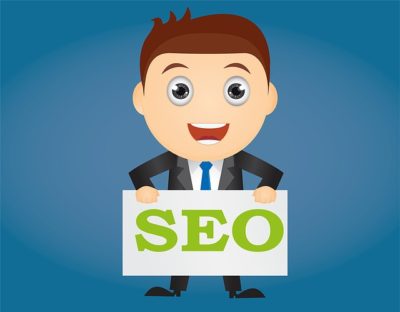The world of ecommerce is constantly growing each year. As the market becomes more and more competitive, so does the SEO (Search Engine Optimization) become more vital for ecommerce businesses.
Nowadays, SEO is a mandatory marketing strategy that can help online stores reach success in the online market. Therefore, it all comes down to ranking well on search engines. The main reason is that 37.5% of all ecommerce traffic originates from search engines.
That said, becoming more visible online through SEO can vastly improve your store’s conversion rate and exposure in a highly competitive market.
However, reaching the top of the search results isn’t easy. In fact, it’s a long process that requires a lot of effort and dedication, which is why eCommerce businesses need the right SEO strategy. With that in mind, here are a few actionable eCommerce SEO strategies that will help you rank quickly in 2020.
Conduct a thorough keyword research
The essence of every ecommerce SEO strategy is keyword research. The main reason is that keywords are the foundation for every SEO-related activity.
Activities, such as optimizing product pages, creating SEO-friendly URLs, designing your website architecture, conducting technical SEO and so on, all require keywords.
That said, finding the right keywords you’ll rank for is of vital importance. The best way to start is to research how your potential customers conduct their online search and which queries they use to search for related products.
This will give you insight into which product-related keywords you should opt for. Furthermore, it’s also a good idea to conduct a competitive analysis to determine which keywords your main competitors use.
That will help you determine how to outrun them and how to avoid keywords that are too competitive. Instead, you can opt for related long-tail keywords that are still relevant but not as competitive as others.
Create seamless site architecture
One of the most important ranking factors today is user experience. If you cater to users’ needs, you’ll favor good ranking with search engines, such as Google. That said, user experience oftentimes comes down to your website’s architecture.
In other words, your website must be functional and user-friendly so that it can meet consumer expectations. Seamless site architecture is, therefore, important for both user experience and SEO. Here are a few things you should focus on:
- Organize product pages, categories and sub-categories.
- Ensure your website is easy to navigate.
- Make sure that every product page isn’t far from your homepage.
- Concentrate link authority on every page for better rankings.
- Keep things simple at all times.
On-page optimization
On-page SEO is crucial for ranking well and for ranking quickly on search engines. It comes down to optimizing your pages so that search engine crawlers can properly index your pages.
On-page optimization includes various activities, such as optimizing title tags, meta descriptions, URLs and so on. Moreover, it’s also very important to optimize the content on your pages, such as product descriptions, keywords, internal links, etc.
In other words, on-page SEO helps search engines understand both the context and the content on your pages so that everything can be indexed properly. If you’re not SEO-savvy, you can still optimize your pages well.
What you can do is partner up with a white label SEO agency that will take care of on-page optimization and other SEO activities while you focus on sales and customer relations. That way, you get to benefit from SEO even if you don’t have the necessary know-how. Ranking quickly oftentimes requires a bit of expert help to give your ecommerce store a necessary ranking boost.
Technical SEO
As mentioned before, user experience is among the most important ranking factors. That said, the technical aspect of your website and its functionality can greatly impact the user experience. That’s where technical SEO comes into play.
The purpose of this activity is to ensure that your website performs exceptionally well. If your customers can browse your online store seamlessly and without any inconveniences, they’ll be satisfied.
Furthermore, the majority of technical SEO factors are also ranking signals. That said, here are the technical aspects that will require your attention:
- Page loading time and website speed – Pages that take too load and websites that are generally sluggish drive users away.
- Mobile-friendliness and responsiveness – Websites that aren’t mobile-friendly or lack a responsive design will drive consumers away because the majority of website traffic is mobile nowadays.
- Duplicate content – The content you have on one page can appear on other pages due to bad optimization. This can confuse consumers and diminish your rankings fast.
- Errors – Errors occurring on pages due to various reasons hurt your rankings. Make sure you fix those errors whenever they appear.
- Broken links – Internal links that point to a content page on your website can no longer find their destination. Make sure you fix or replace them before consumers get aggravated and before search engines penalize you.
Ecommerce businesses rely on SEO to succeed these days. Various strategies lead to different results and the key is to determine what you really need. After that, it becomes easier to implement the right strategies that will allow your online store to rank quickly.









